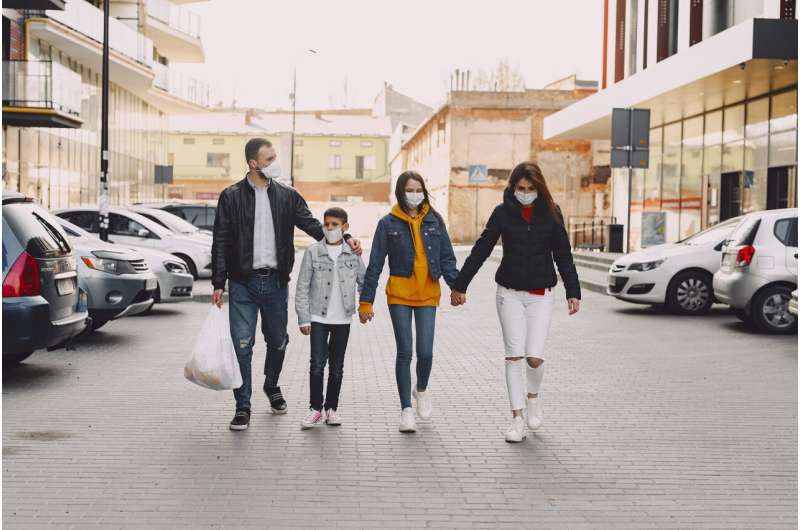COVID vaccines for children under 5 are almost here. Here's what parents need to know

COVID vaccines for children as young as six months look set to be available in the coming months, now the Therapeutic Goods Administration has approved the Moderna vaccine for babies and young children.
The vaccine has been approved for children aged six months to five years. However, we need to wait for advice from the Australian Technical Advisory Group on Immunization (ATAGI) to provide further scientific advice and recommendations around an immunization program. Given no vaccines are currently manufactured in Australia, we will also need to wait for availability of supply before the program can commence.
Australia's approval of the Moderna vaccine for this age group follows a similar move in the United States in June.
Here's what parents need to know ahead of Australia's rollout of the Moderna vaccine to these younger children, the last remaining age group to receive COVID vaccines.
Why vaccinate this age group?
COVID case numbers are still high. So with the threat of Omicron sub-variants and other potential variants, expansion of COVID vaccines to young children will be a welcome relief for many concerned parents and families.
Children are less likely to have severe outcomes or complications from COVID compared with adults. However, they continue to experience high levels of infection. This disrupts their schooling, childcare and other activities. When they are sick, their parents need to take time off work to care for them.
Severe disease can also happen in previously healthy children, and not just in children at higher risk because of underlying medical conditions.
While the total number of admissions to hospital from COVID infection in children is small, a large proportion of these have been children under five years.
That's because they are more likely to need supportive care, such as observation and hydration, than older children.
Children are also at risk of a severe COVID complication known as multi-system inflammatory syndrome. This requires admission to hospital and possibly the intensive care unit. We know vaccination protects children from this life-threatening condition.
The long-term effects and implications of COVID in children are also still not fully understood. Long COVID appears to be much less common in children than in adults, occurring in less than 2–3% of children. So, prevention of infection in children is still a priority.
My child's had COVID. Do they still need a shot?
Many parents may be unsure of the benefit of vaccines if their child has already had COVID, especially if they weren't that unwell.
However, the World Health Organization says protection from vaccinating someone who has already caught COVID (known as providing hybrid immunity) is stronger than that provided by either vaccination or infection alone.
Importantly, hybrid immunity offers superior protection against severe COVID compared with infection-induced or vaccine-induced immunity alone. However, it is unclear whether this hybrid immunity will persist with new variants.
The wider family and community benefit too
The benefits of vaccination extend beyond direct protection. The mRNA vaccines (Moderna, Pfizer) reduce transmission of SARS-CoV-2, the virus that causes COVID, although less so with the Omicron variant.
Nevertheless, the vaccines remain an important way to protect both young children and those around them.
They can help to ensure young kids can still go to kindergarten, play with their friends, travel and visit their grandparents.
Does the vaccine work?
The Moderna vaccine is available for children from six months to five years, with two doses needed to complete the course.
The dose is one-quarter of the adult dose (25 micrograms instead of 100 micrograms), and should be given at least four weeks apart.
The Moderna clinical trials demonstrated adequate vaccine effectiveness in younger infants and children. It showed a 51% effectiveness against COVID infection in children between six months to two years, and 37% effectiveness in children between two and five years.
It's too soon to say how much protection vaccination will protect preschoolers against multi-system inflammatory syndrome, but we do expect some protection.
Is the vaccine safe?
Of course, we need to balance the benefits with any risks, and all vaccines have side effects.
In both real-world data and clinical trials, the number and rate of reports of side effects from COVID vaccines in young children are lower than for adults.
Most of the common and expected side effects in young children occur in the first 24–48 hours and include a fever, painful arm, headache and tiredness.
There were no serious adverse events such as myocarditis (heart inflammation), anaphylaxis (life-threatening immune reaction) or multi-system inflammatory syndrome detected during the clinical trials for this age group for either vaccine.
There are also no currently detected longer-term safety concerns with mRNA vaccines in the pediatric age group.
Once the COVID vaccines are available for this age group, side effects will be monitored and documented through AusVaxSafety and other surveillance systems, as they have been for other age groups, and other childhood vaccines.
This article is republished from The Conversation under a Creative Commons license. Read the original article.![]()


















